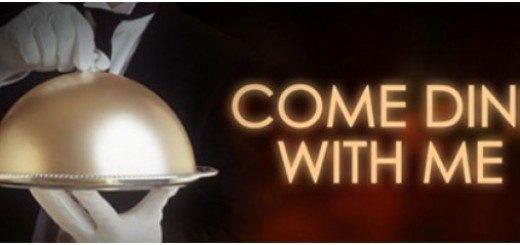What can I bring to the King?
 The Book of Leviticus is not just about rules; it’s also about offerings, about what the people can offer to God for all that He has done for them and as an atonement for all that they have done wrong.
The Book of Leviticus is not just about rules; it’s also about offerings, about what the people can offer to God for all that He has done for them and as an atonement for all that they have done wrong.
The offerings are –
- the burnt offering: ‘a male (bull, sheep, goat, dove, pigeon) without defect’ killed and washed and cut and burned just so, to create ‘an aroma pleasing to the Lord.’
- the grain offering: fine flour (salted but with no yeast), prepared and burnt just so, to create ‘an aroma pleasing to the Lord.’
- the fellowship offering: this is also called the peace offering and is the opportunity to prepare and burn and share in eating an animal (male or female but still without defect – ‘burn them on the altar as food’) in the presence of God and family and friends with this little gem at the end – “‘This is a lasting ordinance for the generations to come, wherever you live: You must not eat any fat or any blood.’” Leviticus 3:17 Really? for generations to come? does that include us then? no fat and no blood? does that include the steak I had for my tea last night? Or is this sentence to be seen entirely in the context of the correct way of carrying out the peace offering ‘for the generations to come’. See how important the context is and how important it is not to take individual verses out of context?
- the sin offering – for when an individual has broken one of the commandments unintentionally – with specific instructions for if a priest sins (a bull), the whole community (a bull), a leader (a male goat) and a member of the community (a female goat) – ‘In this way the priest will make atonement for them for the sin they have committed, and they will be forgiven.’ Leviticus 4:35 If an individual cannot afford a female goat or lamb, then he is to bring two doves or two pigeons and if he cannot afford those, he is to bring fine flour.
- the guilt offering: in this offering there is an element of restitution – ‘a ram without defect and of the proper value’ – if any damage or loss of someone else’s property has occurred, then the individual has to pay it back in full, adding a fifth of the value to it.
- the burnt offering (again!): further details about what the priests should wear and how to keep the fire burning continuously.
- the grain offering (again!): about how the priests are to prepare and eat their share of this offering.
- the guilt offering (again!): about who the priest can share his share with.
- the fellowship offering (again!): different instructions for if the offering is a gesture of thankfulness or a freewill offering or the result of a vow
- Leviticus 7:22-27 We’re back to the fat and blood of animals again here and the instruction is pretty plain and the consequence very clear – ‘Anyone who eats blood must be cut off from their people.’ Leviticus 7:27
- the priest’s share: it is good and proper to give the priests a share of the offering – but the correct parts in the the correct amounts in the correct way…..
 So what can we today learn from this long list of rules and regulations? Here are my ten points……
So what can we today learn from this long list of rules and regulations? Here are my ten points……
- Giving is good. Not out of a crushing sense of duty, but prompted by the natural generosity that is within each one of us
- When we give of our time and gifts and possessions, it has to be the best. Not the best in comparison to others, but the best we can be in the current situation and limitations.
- When we make peace with God and make atonement to God, we have to make peace with the person we have wronged and make restitution – one without the other is not enough.
- Every offering is different because every individual is different. We have to offer what is right for us.
- We offer our gift as a proportion of what we have been given – everyone has something to offer.
- Doing the wrong thing unintentionally is not an excuse – whether it is ‘through negligence, though weakness, through our own deliberate fault’, it is still wrong – when we realise what we have done, then we have to do what we can to put it right.
- Taking time to think back over our thoughts and actions is therefore important – like we do in our liturgy with the Prayer of Confession.
- Often we are more inclined to give if we are thankful for what we have and are in the habit of counting our blessings.
- The quality of and thought that goes into a gift is indicative of how much we value the person. In the same way, however insignificant the task God gives us, we must always give of our best.
- Avoid the fat and the blood (lol) – I guess this would lower global obesity and food poisoning over time!
Let’s finish off with a prayer and a song.
 Firstly the version of the Anglican Prayer of Confession that we use at our church –
Firstly the version of the Anglican Prayer of Confession that we use at our church –
Most merciful God,
Father of our Lord Jesus Christ,
we confess that we have sinned
in thought, word and deed.
We have not loved you with our whole heart.
We have not loved our neighbours as ourselves.
In your mercy
forgive what we have been,
help us to amend what we are,
and direct what we shall be;
that we may do justly,
love mercy,
and walk humbly with thee, our God.
Amen.
 And the song is ‘What shall we bring to the King?’ by Barry McGuire –
And the song is ‘What shall we bring to the King?’ by Barry McGuire –
CHORUS:
What can I give to the King
Give to the One who has everything
What can I give, what gift can I bring
What can I give to the King;
What can I give to the King?VERSE 1
Give Him a heart that is opened up wide,
Give Him a life that’s got nothing to hide;
Give Him a love that is tender and true
And, He’ll give it all back to you,
Yes, He’ll give it all back to you.(CHORUS)
VERSE 2
Give Him all glory, His people on Earth
Give Him all praises this day of His birth
Give Him all honor in all that we do,
As He’s given His life to you,
As He’s given His life to you.
Give Him a heart that is opened up wide. Give Him a life that’s got nothing to hide. Give Him all honour in all that we do.
Wow. Imagine that. Now that’s my kind of offering!












